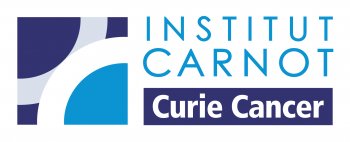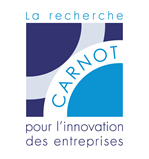Carnot Curie Cancer

Carnot Curie Cancer relies on Institut Curie, which, with more than 3,700 collaborators, is the leading French center for the fight against cancer, combining an internationally renowned research center and a state-of-the-art hospital complex. Carnot Curie Cancer offers industrials the opportunity to set up research collaborations by benefiting from the expertise of Institut Curie teams for the development of innovative therapeutic.
Key figures
Fermer
Key figures
| Permanent staff (full-time equivalent) | 891 |
| PhD Students | 179 |
| Global budget | 104,9 M€ |
| Partnership incomes with industry | 12,7 M€ |
Contact
Fermer
Contact
institut Carnot Curie Cancer
Institut Curie
Département Valorisation
& Partenariats Industriels
26 rue d'Ulm
75248 Paris Cedex 5
Amaury MARTIN
+33 (0)1 56 24 55 80
Géraldine GUBITTA-WANE
+33 (0)1 56 24 55 84
amaury.martin[a]curie.fr Email contact
geraldine.gubitta-wane[a]curie.fr
Parent institutions

